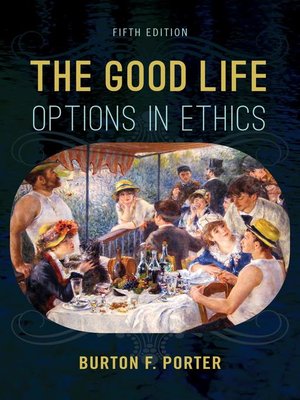
Sign up to save your library
With an OverDrive account, you can save your favorite libraries for at-a-glance information about availability. Find out more about OverDrive accounts.
Find this title in Libby, the library reading app by OverDrive.



Search for a digital library with this title
Title found at these libraries:
| Library Name | Distance |
|---|---|
| Loading... |
Intended for use in the introduction to ethics course, The Good Life: Options in Ethics, Fifth Edition is designed to engage today's practical-minded student in more fundamental questions. The book ranges from ideals in living (the good) to contemporary moral problems (the right), exploring and analyzing both areas in order to stimulate deeper reflection.
The first section of the book clears away the obstacles to pursuing ethical understanding - relativism, determinism, and egoism. Then traditional definitions of the good life are discussed, theories such as hedonism, self-realization, duty, evolutionism, religious ethics, and virtue ethic. The final section addresses today's social problems including abortion, euthanasia, animal welfare, capital punishment, and sexual morality.
Provocative questions are raised throughout such as "Does mutual consent legitimize any behavior or are there actions we ought not to consent to?" "Are there better and worse ways for us to enjoy ourselves?" "If self-actualization is the ideal, then can we fault Atilla the Hun or Genghis Khan for realizing themselves?"
The first section of the book clears away the obstacles to pursuing ethical understanding - relativism, determinism, and egoism. Then traditional definitions of the good life are discussed, theories such as hedonism, self-realization, duty, evolutionism, religious ethics, and virtue ethic. The final section addresses today's social problems including abortion, euthanasia, animal welfare, capital punishment, and sexual morality.
Provocative questions are raised throughout such as "Does mutual consent legitimize any behavior or are there actions we ought not to consent to?" "Are there better and worse ways for us to enjoy ourselves?" "If self-actualization is the ideal, then can we fault Atilla the Hun or Genghis Khan for realizing themselves?"







